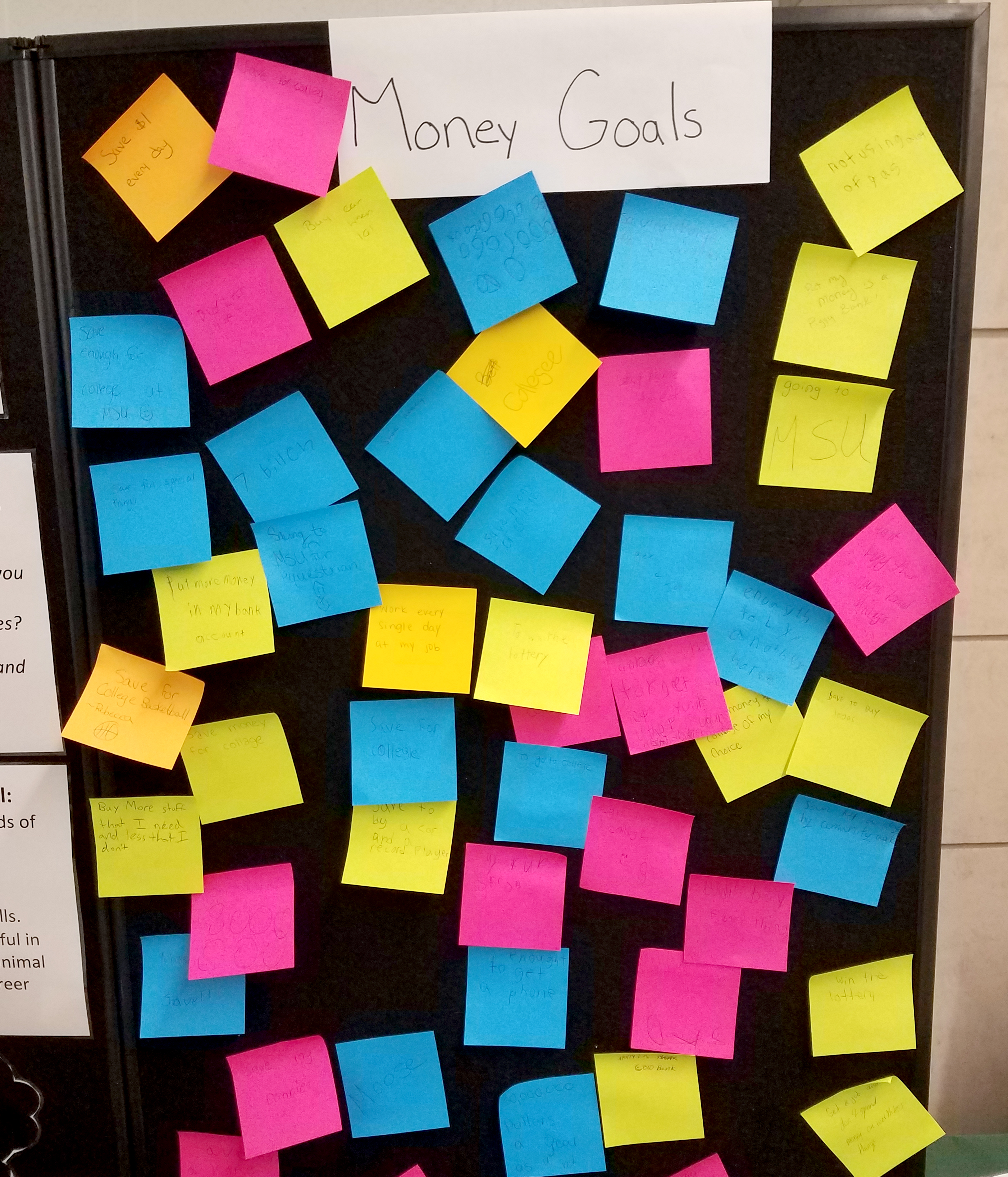Creating money goals is a great activity for club meetings or educational booths
A quick way to engage in money education is through creating money goals.

Setting and working towards goals is an important life skill and very relevant in the realm of financial education. A quick 4-H club meeting or educational booth activity is to have youth participants develop money goals and create a board to display those goals.
When doing this activity, start with education around goals. Ask participants about times they have created goals, what kinds of goals they created and how successful they were at achieving those goals. Then explore what factors helped with their success for times they achieved their goal. Often, the answer will relate to having a written SMART goal (Specific, Measureable, Attainable, Relevant and Time-Bound) an zdhaving an accountability partner to keep the person focused on that goal. Applying this same process will help the youth achieve success with their financial goal.

Once this discussion occurs, participants can create their own money goals. Money goals can be recorded onto shaped pieces of paper, such as 4-H clovers or dollar signs, and posted on a poster board or flipchart paper. Colorful post-it notes are also highly effective for large group settings. Encourage participants in large settings to copy their goal onto another sheet to take home or take a picture of their goal. For smaller groups, the goals can be displayed and then taken home at the end of the session or event. They can also be kept on display for the program year as a record of that goal. Accountability can be done as a group to check in periodically on the success towards the goal.
This process works well for financial goals but can be utilized for any goal-setting process including establishing club or group goals or creating personal project goals.
Michigan State University Extension and Michigan 4-H Youth Development help to prepare young people for successful futures. As a result of career exploration and workforce preparation activities, thousands of Michigan youth are better equipped to make important decisions about their professional future, ready to contribute to the workforce and able to take fiscal responsibility in their personal lives.



 Print
Print Email
Email



